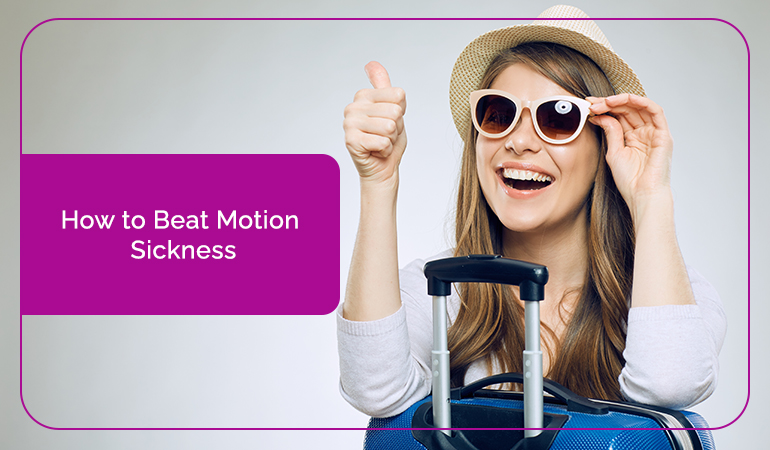The traveller’s scourge goes by many names – motion sickness, travel sickness, seasickness etc, but the outcome is the same, no matter whatever you call it!
Motion sickness can strike anyone and at any time, without providing any warning. If you are a regular traveller, then motion sickness can be a complete nightmare to deal with. So, why does this happen and how to stop it?
What Causes Travel Sickness?
If you are travelling in a car and sitting in the back seat, the car is going, but you are sitting still. This is the time when your sensory environment – joint, brain, senses, etc. are telling you to stay stationary, whereas your inner-ear balance organs (vestibular system) are signalling that things are moving.
At this stage, your vestibular system is telling you one thing and the other senses of your body are telling you another. This means, a conflict is created, wherein your vestibular system becomes confused and over-active.
When this mechanism is taking place, your body reacts, and this is what we commonly call motion sickness.
In simpler terms, you can say that it is a mismatch between the inputs, particularly when your vestibular system is very active.
Symptoms of Travel Sickness
To be frank, not pleasant!
The vestibular nuclei and the body’s vomiting centre are close to each other, hence, motion sickness can trigger nausea and vomiting. These two are the most common symptoms of motion sickness.
But remember that motion sickness is not only about nausea and vomiting, but there is sweating, headache, pallor, drowsiness, and a few people can even become apathetic as well.
In certain cases, a few other people even experience dizziness, rapid breathing, and extreme fatigue as well.
Tips for Dealing With Motion Sickness
Motion sickness can be cured as a restrictive ailment. If that was not possible, then how do pilots and astronauts achieve such great feats? It is because they are put under some pretty rough and rigorous training to rewire their vestibular system and prepare their body to accept motion sickness.
But for common people, without access to a centrifugal force machine, it can be very less straightforward….
Frequent travellers get used to motion sickness to a certain extent. So, do you mean travel sickness is just a case of getting used to it?
Well, there are a lot of simple things that can help control your motion sickness, like avoiding reading or scrolling on your phone, etc. This way your visual stimulus can override the vestibular information which tells you that you are still.
Fresh air can also help, but it cannot be that easy when you are up at 30, 000 feet. Sounds crazy! So, if you are travelling in a car then just open the window to feel some fresh air and if you are travelling in a boat, then get out of the deck and look at the horizon. This way your brain will start rewiring things and get used to the new situation.
Some researchers do suggest that sufferers drive themselves to keep their brain engaged, instead of sitting in the front seat beside the driver. On the other hand, closing their eyes works for some people.
Certain Tips To Be Followed
- When travelling, sit near a window and if possible, close your eyes.
- Avoid reading or scrolling through your phone.
- Try to get some fresh air when travelling in a car, train, or boat.
- Change your surroundings.
- Be the driver when you are travelling in a car.
- Try herbal remedies such as peppermint or ginger tea.
- Consult your doctor/chemist and try different motion sickness relieving tablets.
Why Are Few People Susceptible Than Others?
Almost everyone gets motion sickness, but some people have a higher threshold for motion sickness than others. For example, women are more susceptible than men, and children aged between 2 to 15, are more likely to suffer from motion sickness.
Genetics also plays its part, because 55-70% of motion sickness is most probably caused due to genetic factors.
Any Herbal Remedies or Medication?
Herbal remedies such as peppermint or ginger tea are said to work wonders for a few people, but there is no conclusive evidence as such.
Neither does medication completely cure, but in many cases can certainly help.
Medication may differ from one individual to another individual. So, choose the medication that works best for you!

